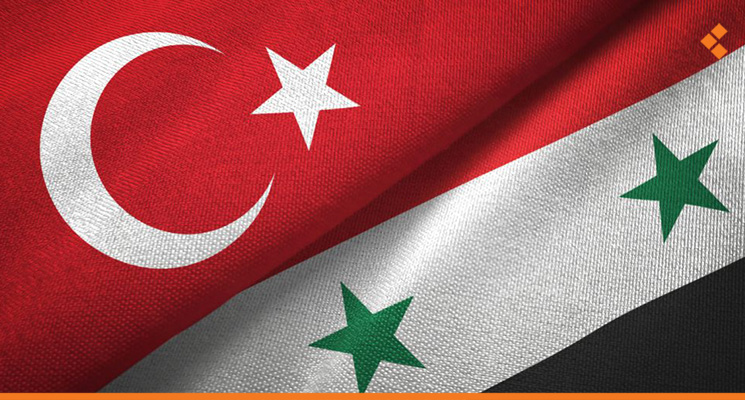New leaks have provided confirmation of significant developments in the ongoing Syrian-Turkish rapprochement. Following a meeting in Astana on June 21, involving assistant foreign ministers from Syria, Russia, Turkey, and Iran, Russia announced that the four parties had reached an agreement on a “road map” for reconciliation between Syria and Turkey. Subsequently, leaks began to emerge, shedding light on the details of the talks and the overall progress of the Syrian-Turkish rapprochement.
Coinciding with the conclusion of the meeting, there were notable field movements in Syria. These included Turkish bombardment targeting areas controlled by the “Kurdish Units” in northern Syria and joint Russian-Syrian airstrikes on positions held by armed factions in western Syria.
Analysts have linked this escalation to the trajectory of the Syrian-Turkish rapprochement, emphasizing that Syria insists on the withdrawal of Turkish forces from its territory as a prerequisite for any reconciliation with Turkey. The Turkish border remains the last area under the control of armed factions, primarily represented by “Hay’at Tahrir al-Sham” (formerly Jabhat al-Nusra), which is listed as a terrorist organization internationally.
A report cited Schiller, a Middle East analyst at the German Heinrich Böll Foundation, who commented on the escalation, suggesting that Russia is exerting pressure on Turkey to normalize its relations with Syria. This would send a significant signal not only to Europe but also to NATO.
Syria Strongly Condemns Insult of Holy Quran by Extremist with Swedish Government’s Permission
Regarding the specifics of the Astana 20 talks, the Turkish newspaper Yeni Shafak, known for its close ties to Turkish President Recep Tayyip Erdogan, quoted sources stating that Ankara proposed the establishment of a joint military coordination mechanism for conducting joint operations against “terrorist” targets. Each country would be represented by a delegate in this mechanism, the details of which are expected to become clearer in future meetings.
Furthermore, Abdel-Bari Atwan, the former editor-in-chief of “Rai Al-Youm” newspaper, revealed that he had a meeting with President Bashar Al-Assad, during which it was indicated that the Syrian-Turkish rapprochement has witnessed several developments. President Al-Assad made it clear that understanding had been reached and that a withdrawal from Syrian territory would pave the way for an improved relationship compared to the past. It was noted that the Adana Agreement of 1998, which previously regulated relations between the two countries, would serve as the foundation for any future understanding.
At the conclusion of the Astana 20 talks, Alexander Lavrentiev, the Russian President’s special envoy to Syria, confirmed that Syria, Turkey, and Iran had agreed on the concept of the “road map” presented by Russia for normalizing relations between Ankara and Damascus. The head of the Iranian delegation, Deputy Foreign Minister Ali Asghar Khaji, also affirmed the desire of Russia, Iran, Turkey, and Syria to hold another meeting at the level of deputy foreign ministers.
It is worth noting that the initial ministerial meeting between Syrian and Turkish representatives took place in December 2022 when the defence ministers of Syria, Turkey, and Russia met in Moscow. This meeting laid the groundwork for the subsequent gathering of assistant foreign ministers from Syria, Turkey, Russia, and Iran on June 20th and 21st.
This article was translated and edited by The Syrian Observer. The Syrian Observer has not verified the content of this story. Responsibility for the information and views set out in this article lies entirely with the author.


